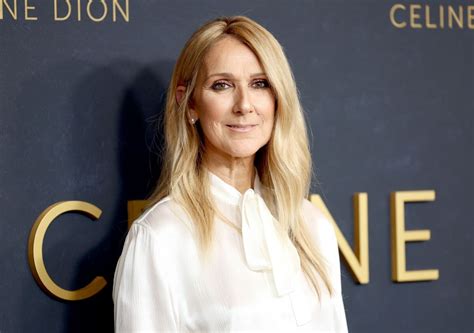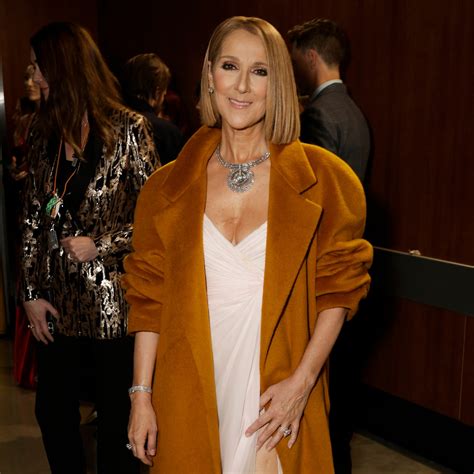
Helen Mirren’s candid remarks about aging and beauty standards in Hollywood, specifically her assertion that “None of us are beautiful,” have sparked a significant reaction, drawing responses from fellow actresses Kathy Bates and Kurt Russell. Mirren’s comments, made during a recent interview, challenge conventional notions of beauty and advocate for a more inclusive and realistic portrayal of aging women in the entertainment industry.
Dame Helen Mirren’s forthright perspective on beauty, aging, and representation in Hollywood has resonated widely, prompting a robust discussion among industry peers and audiences alike. In a recent interview, Mirren openly challenged the pervasive and often unrealistic beauty standards that dominate the entertainment industry, stating, “None of us are beautiful.” Her comments were not intended as self-deprecation but rather as a broader critique of the narrow definitions of beauty that often exclude older women. The statement was part of a larger conversation about the importance of embracing natural aging and promoting a more diverse representation of women on screen.
Mirren’s remarks have since elicited responses from fellow actors Kathy Bates and Kurt Russell, both of whom echoed her sentiments and emphasized the need for greater inclusivity and authenticity in Hollywood. Bates, known for her powerful performances and unwavering commitment to portraying strong, complex female characters, has long been an advocate for body positivity and age acceptance. Russell, a veteran actor with a career spanning several decades, has also spoken out against the pressures faced by actors to maintain a youthful appearance.
The Context of Mirren’s Statement
Mirren’s comments were made in the context of a broader discussion about the portrayal of women in Hollywood. For years, the entertainment industry has been criticized for its tendency to favor younger actresses and to sideline older women, often relegating them to stereotypical or supporting roles. This trend has contributed to a culture of ageism and has perpetuated unrealistic beauty standards that can be harmful to women of all ages.
In recent years, however, there has been a growing movement to challenge these norms and to advocate for greater inclusivity and diversity in Hollywood. Actresses like Mirren, Bates, and Russell have been at the forefront of this movement, using their platforms to speak out against ageism and to promote a more positive and realistic representation of women on screen.
Mirren’s assertion that “None of us are beautiful” was not meant to be taken literally. Rather, it was a call for a broader definition of beauty that encompasses inner qualities, character, and life experience. She argued that true beauty comes from within and that it is not limited to physical appearance. She also emphasized the importance of embracing natural aging and of rejecting the pressure to conform to unrealistic beauty standards.
“I hate the word ‘beauty,'” Mirren stated. “I don’t mind ‘handsome,’ because that’s a more expansive idea. But ‘beauty’ is so limiting. It’s like, ‘Oh, she’s beautiful.’ Well, so what?”
Reactions from Bates and Russell
Kathy Bates, a longtime friend and colleague of Mirren, praised her for speaking out against ageism and for challenging conventional beauty standards. Bates has been vocal about her own experiences with body image and has advocated for greater inclusivity in Hollywood. She applauded Mirren’s courage in addressing these issues publicly and expressed her support for a more diverse and realistic representation of women on screen.
Kurt Russell, who has worked in the entertainment industry for over five decades, echoed Mirren’s sentiments about the pressures faced by actors to maintain a youthful appearance. He noted that both men and women are subjected to these pressures and that it can be challenging to resist the urge to conform. However, he emphasized the importance of staying true to oneself and of embracing the natural aging process.
“It’s tough,” Russell acknowledged. “But I think it’s important to remember that age is just a number. What really matters is your health, your happiness, and your relationships with the people you love.”
The Impact of Mirren’s Words
Mirren’s comments have resonated with many people, both inside and outside of the entertainment industry. Her words have sparked a conversation about beauty standards, ageism, and the importance of self-acceptance. Many women have expressed gratitude to Mirren for speaking out and for challenging the status quo.
Social media has been flooded with comments and posts praising Mirren for her honesty and her courage. Many people have shared their own experiences with ageism and have expressed their support for a more inclusive and realistic representation of women in Hollywood.
Mirren’s words have also had a ripple effect in the entertainment industry. Some producers and directors have begun to rethink their casting decisions and to consider older actresses for roles that were previously reserved for younger women. There has also been a greater emphasis on portraying older characters in a more nuanced and realistic way.
Mirren’s Perspective on Aging
Mirren has always been candid about her views on aging. She has repeatedly stated that she embraces the aging process and that she refuses to succumb to the pressure to look younger. She has also encouraged other women to do the same.
“I love being older,” Mirren has said. “I think it’s a privilege. So many people don’t get the chance to grow old. And I think the older you get, the more interesting you become. You’ve lived more, you’ve experienced more, you’ve learned more.”
Mirren has also been critical of the cosmetic surgery industry, arguing that it perpetuates unrealistic beauty standards and that it can be harmful to women’s self-esteem. She has stated that she has no plans to undergo any cosmetic procedures and that she is happy with the way she looks.
“I’m not going to lie,” Mirren admitted. “I do look in the mirror and think, ‘Oh, that’s a bit saggy.’ But I don’t let it get me down. I think it’s important to embrace the changes that come with age and to focus on the things that you can still do.”
The Broader Implications
Mirren’s comments have broader implications beyond the entertainment industry. Her words are relevant to all women, regardless of their age or profession. She is advocating for a more inclusive and realistic view of beauty and for a culture that values inner qualities over physical appearance.
Her message is particularly important in today’s society, where women are constantly bombarded with images of seemingly perfect bodies and faces. These images can be damaging to women’s self-esteem and can lead to feelings of inadequacy.
Mirren is encouraging women to reject these unrealistic beauty standards and to embrace their natural selves. She is reminding women that true beauty comes from within and that it is not limited to physical appearance. She is also advocating for a more inclusive and diverse representation of women in all areas of life.
The Future of Beauty Standards
It remains to be seen whether Mirren’s comments will have a lasting impact on beauty standards in Hollywood and beyond. However, her words have undoubtedly sparked a conversation and have raised awareness about the issue of ageism.
It is hoped that Mirren’s message will inspire more women to embrace their natural selves and to reject unrealistic beauty standards. It is also hoped that the entertainment industry will become more inclusive and diverse and that older women will be given more opportunities to shine on screen.
The conversation surrounding beauty standards is far from over, but Mirren’s words have undoubtedly contributed to a more open and honest dialogue. Her courage in speaking out against ageism and in challenging conventional beauty standards is an inspiration to women of all ages. Her perspective is a welcome reminder that true beauty comes from within and that it is not limited to physical appearance. The impact of her statement, coupled with the support from figures like Kathy Bates and Kurt Russell, could potentially pave the way for a more inclusive and realistic portrayal of beauty in Hollywood and beyond. This shift could encourage a broader acceptance of natural aging and a deeper appreciation for the qualities that make individuals unique and valuable, regardless of their age or physical appearance.
Frequently Asked Questions (FAQ)
1. What prompted Helen Mirren to say, “None of us are beautiful?”
Helen Mirren’s statement was made during an interview discussing the pervasive and often unrealistic beauty standards in Hollywood. It was not meant as a literal assessment of physical appearance but rather as a critique of the narrow definitions of beauty that often exclude older women and promote ageism within the entertainment industry. She aimed to broaden the definition of beauty to encompass inner qualities, character, and life experience.
2. How did Kathy Bates and Kurt Russell respond to Helen Mirren’s comments?
Kathy Bates and Kurt Russell echoed Helen Mirren’s sentiments, emphasizing the need for greater inclusivity and authenticity in Hollywood. Kathy Bates, a longtime advocate for body positivity and age acceptance, praised Mirren for speaking out against ageism and challenging conventional beauty standards. Kurt Russell, a veteran actor, acknowledged the pressures faced by actors to maintain a youthful appearance and stressed the importance of embracing the natural aging process. Both actors voiced their support for a more diverse and realistic representation of women on screen.
3. What is Helen Mirren’s overall perspective on aging?
Helen Mirren embraces the aging process and refuses to succumb to the pressure to look younger. She views aging as a privilege and believes that older individuals become more interesting as they gain life experience. She is critical of the cosmetic surgery industry, arguing that it perpetuates unrealistic beauty standards and can be harmful to women’s self-esteem. Mirren encourages other women to embrace their natural selves and reject the pressure to conform to societal expectations regarding youthfulness.
4. What impact has Helen Mirren’s statement had on the entertainment industry?
Helen Mirren’s statement has sparked a conversation about beauty standards, ageism, and self-acceptance, both within and outside the entertainment industry. It has prompted some producers and directors to rethink their casting decisions and consider older actresses for roles previously reserved for younger women. There has also been a greater emphasis on portraying older characters in a more nuanced and realistic way. The statement has raised awareness about the need for a more inclusive and diverse representation of women in Hollywood.
5. What are the broader implications of Helen Mirren’s comments beyond Hollywood?
Helen Mirren’s comments have broader implications for all women, regardless of their age or profession. She is advocating for a more inclusive and realistic view of beauty and for a culture that values inner qualities over physical appearance. Her message is particularly relevant in today’s society, where women are constantly bombarded with images of seemingly perfect bodies and faces. She is encouraging women to reject unrealistic beauty standards, embrace their natural selves, and recognize that true beauty comes from within.
Expanding on Mirren’s Philosophy:
Mirren’s philosophy extends beyond simply accepting wrinkles and gray hair. It delves into the essence of what makes a person captivating and memorable. She argues that genuine beauty arises from a combination of experience, wisdom, and inner strength. These qualities, she believes, are cultivated over time and contribute to a more profound and lasting form of attractiveness.
Her perspective challenges the superficiality often associated with Hollywood, where youth and flawless physical appearance are often prioritized. By questioning the very definition of beauty, Mirren encourages both industry professionals and audiences to reconsider their values and embrace a more holistic view of human worth. This shift in perspective could lead to a greater appreciation for the diverse beauty found in people of all ages and backgrounds.
The Role of Media and Representation:
The media plays a significant role in shaping perceptions of beauty and age. When older women are consistently portrayed in stereotypical roles or are simply absent from the screen, it reinforces the idea that they are less valuable or less interesting than their younger counterparts. This lack of representation can have a detrimental effect on the self-esteem and confidence of women of all ages.
Mirren’s advocacy for greater inclusivity in Hollywood is a call for the media to reflect the diversity of the real world. By showcasing older women in complex, multifaceted roles, the entertainment industry can challenge ageist stereotypes and promote a more positive and realistic view of aging. This shift in representation can empower women to embrace their age and celebrate the unique qualities that come with it.
Beyond Physical Appearance: Embracing Inner Beauty:
Mirren’s emphasis on inner beauty underscores the importance of cultivating qualities such as kindness, compassion, and intelligence. These attributes, she believes, are far more valuable than physical appearance and contribute to a more fulfilling and meaningful life. By focusing on developing these inner qualities, women can cultivate a sense of self-worth that is independent of external validation.
This perspective challenges the societal pressure for women to constantly strive for physical perfection. Instead, Mirren encourages women to prioritize their personal growth and to embrace their individuality. This shift in focus can lead to a greater sense of self-acceptance and a more positive body image.
The Economic Implications of Ageism in Hollywood:
Ageism in Hollywood is not just a social issue; it also has significant economic implications. When older actresses are denied opportunities, it limits their earning potential and perpetuates a cycle of inequality. This also deprives audiences of the talent and experience that older actresses bring to the screen.
By advocating for greater inclusivity, Mirren is also advocating for a more equitable and sustainable entertainment industry. When older actresses are given opportunities to showcase their talents, it benefits not only themselves but also the industry as a whole. This can lead to a wider range of stories being told and a more diverse and engaged audience.
The Power of Role Models:
Mirren, Bates, and Russell serve as powerful role models for women of all ages. Their willingness to speak out against ageism and to challenge conventional beauty standards inspires others to do the same. By embracing their age and celebrating their individuality, they demonstrate that beauty is not limited to youth and that women can thrive at any stage of life.
Their influence extends beyond the entertainment industry, encouraging women in all fields to challenge ageist attitudes and to advocate for their rights. Their actions demonstrate that individual voices can make a difference and that collective action can lead to significant change.
The Global Context of Beauty Standards:
Beauty standards vary across cultures and time periods. What is considered beautiful in one society may not be considered beautiful in another. However, in many cultures, there is a tendency to idealize youth and to marginalize older women.
Mirren’s message resonates globally because it challenges this universal tendency. She encourages women to question the beauty standards that are imposed upon them and to define beauty on their own terms. This message is particularly important in an increasingly interconnected world, where exposure to diverse cultures can help to broaden perspectives and challenge preconceived notions of beauty.
The Importance of Intergenerational Dialogue:
Addressing ageism requires intergenerational dialogue and understanding. Younger generations can learn from the wisdom and experience of older generations, while older generations can benefit from the fresh perspectives and innovative ideas of younger generations.
By fostering open and respectful conversations between generations, we can break down ageist stereotypes and create a more inclusive and equitable society. This dialogue can also help to bridge the gap between generations and promote a sense of solidarity and mutual support.
The Call to Action:
Mirren’s statement is a call to action for individuals, the media, and the entertainment industry. It is a call to question conventional beauty standards, to challenge ageist attitudes, and to advocate for greater inclusivity and diversity. It is a call to embrace natural aging, to celebrate inner beauty, and to recognize the value of women of all ages.
By working together, we can create a world where women are valued for their character, their experience, and their contributions, rather than solely for their physical appearance. This will require a fundamental shift in mindset, but the rewards will be well worth the effort. A more inclusive and equitable society will benefit not only women but also all of humanity. The journey towards a more inclusive and accepting world is ongoing, and the voices of influential figures like Helen Mirren, Kathy Bates, and Kurt Russell serve as crucial catalysts for change, inspiring countless individuals to challenge the status quo and embrace a more authentic and empowering vision of beauty.









